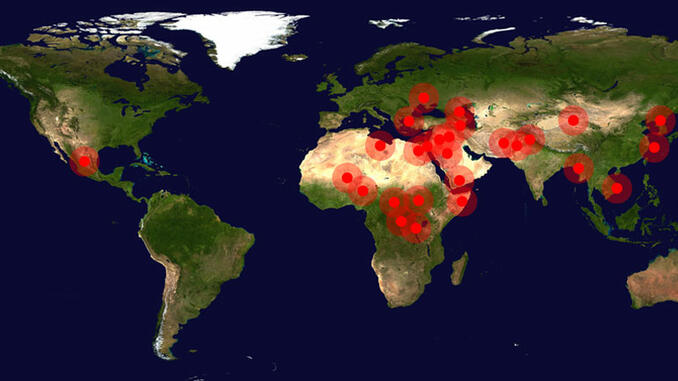
As many of my regular readers have probably picked up on, I cite Council on Foreign Relations sources often in my articles. They are a great source for analysis on events that are unfolding around the world. Every year the CFR’s Center for Preventive Action publishes a list of probable and potential crises that are likely to occur in the upcoming year. The Center for Preventive Action in their yearly survey asks a group of foreign policy experts “to rank thirty ongoing or potential conflicts based on their likelihood of occurring or escalating in the next year and their potential impact on U.S. national interests.”
Twenty-two of the 30 concerns or “contingencies” from last year’s survey have carried over to this year. Eight new contingencies have been added to this year as clashes intensify between Hezbollah and Israel, the increase in political instability in the Sahel region of Africa, and an escalation of extremist violence in the Balkans being among the added conflicts.
The highest ranking situations in this year’s Preventive Priorities Survey are:
- Military conflict involving the United States, North Korea, and its neighboring countries
- A deliberate or unintended military confrontation between Russia and NATO members, stemming from assertive Russian behavior in Eastern Europe
- A highly disruptive cyberattack on U.S. critical infrastructure and networks
- An armed confrontation between Iran and the United States or one of its allies over Iran’s involvement in regional conflicts and support of militant proxy groups
- An armed confrontation over disputed maritime areas in the South China Sea between China and one or more Southeast Asian claimants—Brunei, Malaysia, the Philippines, Taiwan, or Vietnam
- A mass casualty terrorist attack on the U.S. homeland or a treaty ally by either foreign or homegrown terrorist(s)
- Violent reconsolidation of government control in Syria, with heightened tensions among external parties to the conflict
- Increased violence and instability in Afghanistan resulting from the Taliban insurgency and potential government collapse
To read the Center for Preventive Action’s entire report and see the full list of threats, you can download the PDF file here.
During an interview with The Atlantic, Paul Stares, the Director of the Center for Preventive Action said, “The U.S. is now the most unpredictable actor in the world today, and that has caused profound unease.” Stares added, “You used to be able to pretty much put the U.S. to one side and hold it constant, and look at the world and consider where the biggest sources of unpredictability, insecurity are. Now you have to include the U.S. in that…. No one has high confidence how we [Americans] would react in any given situation, given how people assess this president.”
President Trump once wrote in 2015, “I don’t want people to know exactly what I’m doing—or thinking. I like being unpredictable. It keeps them off balance.” Indeed, with a president who takes pride in being unpredictable, analysts have to include him in their calculus of possible threats.
